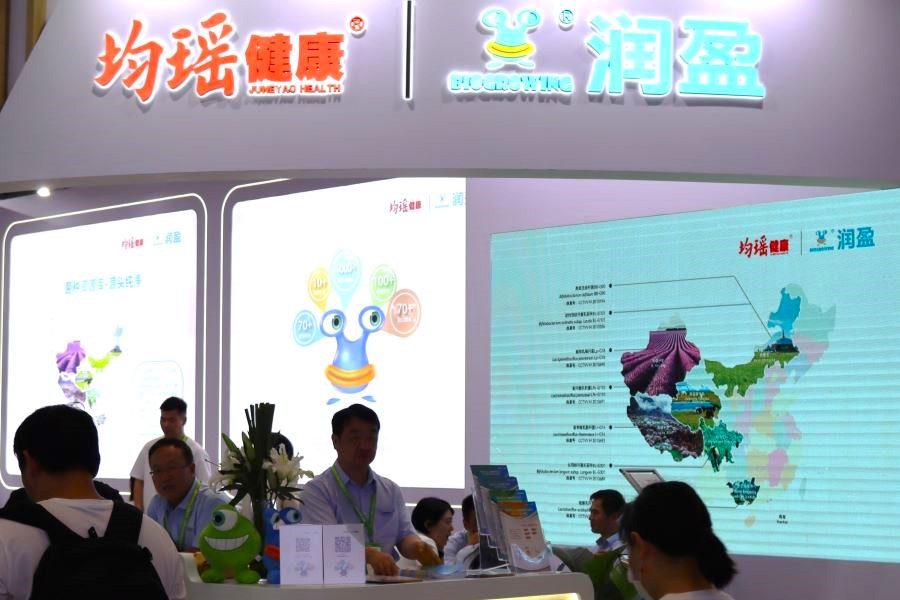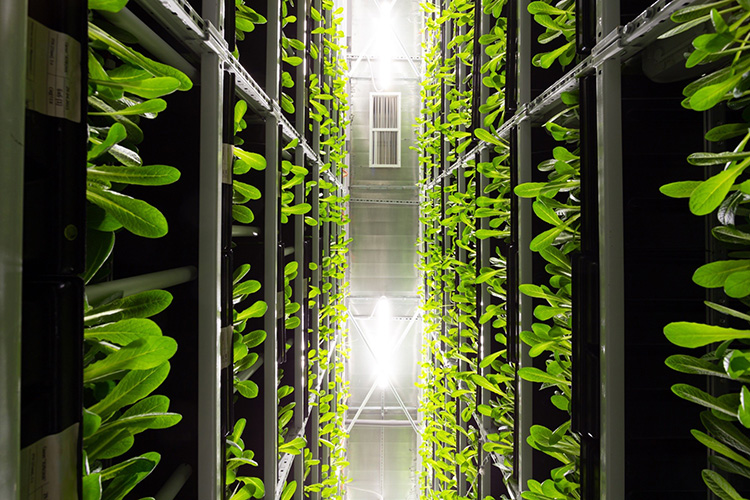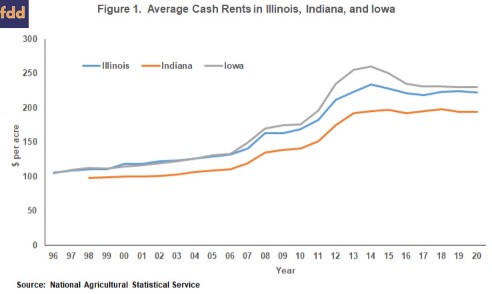Report on Arkansas-Taiwan Agricultural Agreement and its Alignment with Sustainable Development Goals
Executive Summary
The State of Arkansas has entered into a significant trade agreement with two leading Taiwanese agricultural associations, formalized through the signing of Letters of Intent (LOIs). This agreement, valued at a minimum of $5.56 billion, secures the purchase of Arkansas and U.S. agricultural products for the period of 2026 to 2029. The partnership directly supports several United Nations Sustainable Development Goals (SDGs), primarily focusing on promoting economic growth (SDG 8), ensuring food security (SDG 2), and fostering global partnerships (SDG 17).
Agreement Details and Economic Impact (SDG 8: Decent Work and Economic Growth)
The LOIs represent a substantial investment in the Arkansas agricultural sector, fostering sustained economic growth and providing stability for the state’s row crop farmers. This aligns directly with the objectives of SDG 8 by promoting productive employment and decent work.
- Participating Entities:
- State of Arkansas
- Taiwan Feed Industry Association
- Taiwan Vegetable Oil Manufacturers Association
- Commitment Period: 2026 – 2029
- Total Estimated Value: At least $5.56 billion
- Taiwan Feed Industry Association Commitment:
- Commodities: 7.5 million metric tons of corn and 1 million metric tons of corn products.
- Value: Approximately $2.12 billion.
- Taiwan Vegetable Oil Manufacturers Association Commitment:
- Commodity: At least 6.5 million metric tons of soybeans.
- Value: At least $3.44 billion.
Contribution to Global Food Security (SDG 2: Zero Hunger)
This trade agreement is a critical component in strengthening global food supply chains and contributes to the goals of SDG 2. By ensuring a consistent and large-scale supply of essential agricultural commodities, the partnership enhances food security for Taiwan while supporting the livelihoods of food producers in Arkansas.
- Ensuring Stable Supply: The agreement guarantees a multi-year supply of corn for animal feed and soybeans for vegetable oil, which are fundamental to Taiwan’s food system.
- Supporting Sustainable Agriculture: The long-term commitment provides financial security for Arkansas farmers, enabling investment in sustainable agricultural practices.
- Strengthening Food Systems: The partnership reinforces the resilience of the international food trade, mitigating risks of supply chain disruptions.
Strengthening International Partnerships for Sustainable Development (SDG 17: Partnerships for the Goals)
The agreement exemplifies a robust international partnership, a cornerstone of SDG 17. It builds upon an already strong trade relationship, where Taiwan is the fifth-largest agricultural export market for Arkansas and the eighth-largest for the United States.
- Bilateral Cooperation: The LOIs align with broader U.S.-Taiwan trade initiatives, such as the Taiwan-U.S. Economic Prosperity Partnership Dialogue, reinforcing mutual economic goals.
- Stakeholder Engagement: The partnership was strengthened by a visit from a Taiwanese delegation to Arkansas, which included tours of agricultural facilities like Bruce Oakley, Inc. and Bearskin Farm, and meetings with the Arkansas Department of Agriculture and the University of Arkansas System Division of Agriculture.
- Multi-stakeholder Collaboration: The successful negotiation involved state government, industry associations, and agricultural producers, demonstrating a comprehensive approach to achieving shared development goals.
Analysis of Sustainable Development Goals in the Article
1. Which SDGs are addressed or connected to the issues highlighted in the article?
-
SDG 2: Zero Hunger
The article discusses a major trade agreement for agricultural products, specifically corn, corn products, and soybeans. These are staple commodities essential for food security and animal feed, directly linking the agreement to the global food supply chain and the goal of ending hunger.
-
SDG 8: Decent Work and Economic Growth
The agreement represents a “multi-billion-dollar investment” ($5.56 billion) into the Arkansas economy. This is explicitly stated as “great news for Arkansas and especially our row crop farmers,” highlighting its direct impact on local economic growth, supporting the agricultural sector, and sustaining livelihoods for farmers.
-
SDG 17: Partnerships for the Goals
The core of the article is the partnership between a U.S. state (Arkansas) and Taiwanese agricultural associations. It mentions “U.S.-Taiwan trade initiatives,” “bilateral mechanisms aimed at strengthening economic cooperation,” and collaboration between government entities and industry partners, which perfectly embodies the principles of SDG 17.
2. What specific targets under those SDGs can be identified based on the article’s content?
-
Target 2.b: Correct and prevent trade restrictions and distortions in world agricultural markets
The signing of Letters of Intent (LOIs) to facilitate the purchase of billions of dollars worth of agricultural products is an action that promotes open and stable trade in world agricultural markets. The agreement between Arkansas and Taiwan helps ensure a predictable flow of commodities, aligning with the goal of preventing trade distortions.
-
Target 8.1: Sustain per capita economic growth in accordance with national circumstances
The article highlights a commitment of “$5.56 billion in purchases of Arkansas and U.S. agricultural products.” This significant financial injection is intended to boost the state’s economy, particularly supporting its “row crop producers,” thereby contributing to sustained economic growth in Arkansas.
-
Target 17.11: Significantly increase the exports of developing countries, in particular with a view to doubling the least developed countries’ share of global exports by 2020
While the U.S. is not a developing country, the principle of increasing exports to foster economic health is central to this target. The article details how this agreement boosts Arkansas’s exports, noting that Taiwan is already its “fifth-largest export market” and this deal will substantially increase that trade relationship.
-
Target 17.17: Encourage and promote effective public, public-private and civil society partnerships, building on the experience and resourcing strategies of partnerships
This target is directly addressed through the collaboration described in the article. The agreement is a partnership between a public entity (the government of Arkansas, represented by the Governor and Department of Agriculture) and private industry associations (“Taiwan Feed Industry Association” and “Taiwan Vegetable Oil Manufacturers Association”).
3. Are there any indicators mentioned or implied in the article that can be used to measure progress towards the identified targets?
-
Implied Indicator for Target 2.b: Volume and value of agricultural trade
The article provides specific quantitative data that can serve as indicators of progress. It mentions the intended purchase of “7.5 million metric tons of corn and 1 million metric tons of corn products” and “at least 6.5 metric tons of soybeans.” These volumes, along with their monetary values (“$2.12 billion” and “$3.44 billion,” respectively), are direct measures of the flow of agricultural goods facilitated by the agreement.
-
Implied Indicator for Target 8.1: Value of foreign investment/trade agreements
The total value of the deal, “at least $5.56 billion,” serves as a direct indicator of a major economic infusion that contributes to the state’s economic growth. This figure can be used to measure the financial impact of the partnership on the local economy.
-
Implied Indicator for Target 17.11: Value of exports
The article provides baseline and projected data on export values. It states that Arkansas exported “$63.2 million to Taiwan” in 2024 and that the new agreement commits to “$5.56 billion” in purchases between 2026 and 2029. The change in export value over this period is a clear indicator of progress.
-
Indicator for Target 17.17 (Official Indicator 17.17.1): Amount of United States dollars committed to public-private and civil society partnerships
The article explicitly states the financial commitment of this public-private partnership. The total value of “at least $5.56 billion” is a direct measurement that aligns perfectly with the official indicator for this target, quantifying the financial scale of the collaboration.
4. Summary Table of SDGs, Targets, and Indicators
| SDGs | Targets | Indicators |
|---|---|---|
| SDG 2: Zero Hunger | Target 2.b: Correct and prevent trade restrictions and distortions in world agricultural markets. | Value and Volume of Agricultural Products Traded:
|
| SDG 8: Decent Work and Economic Growth | Target 8.1: Sustain per capita economic growth in accordance with national circumstances. | Value of Economic Investment: A commitment of “$5.56 billion in purchases” which acts as a direct investment into the Arkansas agricultural economy. |
| SDG 17: Partnerships for the Goals | Target 17.11: Significantly increase the exports of developing countries… | Value of Exports: Increase from “$63.2 million to Taiwan” in 2024 to a share of the “$5.56 billion” commitment from 2026-2029. |
| SDG 17: Partnerships for the Goals | Target 17.17: Encourage and promote effective public, public-private and civil society partnerships… | Amount of U.S. dollars committed to public-private partnerships (Indicator 17.17.1): The article explicitly states a financial commitment of “at least $5.56 billion.” |
Source: governor.arkansas.gov







